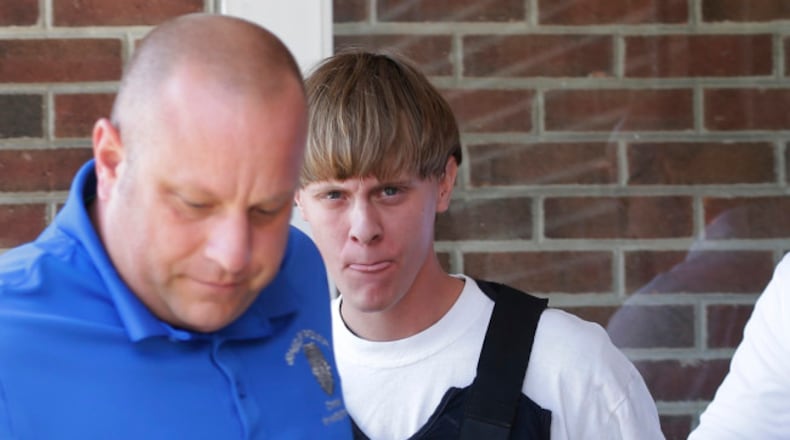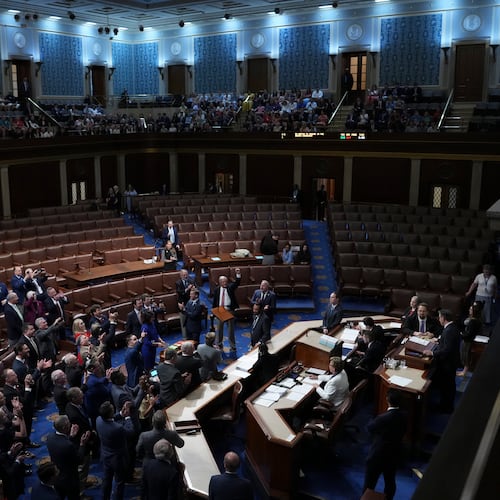In his pained statements this week about the tragedy in Charleston, President Obama once again noted the toll taken by firearms in this country, particularly in mass killings.
“At some point, we as a country will have to reckon with the fact that this type of mass violence does not happen in other advanced countries,” he said. “It is in our power to do something about it. I say that, recognizing the politics in this town foreclose a lot of the avenues right now. But it would be wrong for us not to acknowledge it. And at some point it’s going to be important for the American people to come to grips with it.”
I understand the president's sentiment and concur with his larger point. However, I can conceive of no gun law that would have kept firearms out of the hands of a 21-year-old from rural South Carolina with no official record of mental health issues and no record of convictions. (The converse notion -- that the answer is "a good man with a gun" at a church Bible study -- is even less based in reality, useful only as an insight into the fantasy lives of those who offer that as a solution).
Around the world, in every case, societies with more guns are not more peaceful societies; the more guns, the more violence. That is true here in the United States as well; if broader gun ownership reduced violent crime, violent crime would be lower here in the South than anywhere in the country. The opposite is true.
It has also become clear that the attack on Emanuel AME Church that killed its pastor and eight other people was a premeditated, conscious act of terrorism, just as surely as the attack on the Boston Marathon by the Tsarnaev brothers was an act of terror. It was conceived and perpetrated as a political act to advance a cause, and that cause is rooted in racism and white supremacy.
These racist ideas did not come to Dylann Roof from nowhere. They have a source in history and culture. They survive because they are still able to find an environment in which they are permitted to thrive, in which they are accepted and casually tolerated rather than strongly rejected. Roof is unique only in the extremely violent way in which he acted upon those ideas.
And where might Roof get the idea that racism and segregation might still have its apologists? Gee, I don't know ... ?
No, the fact that the Confederate battle emblem still flies from a place of honor at the South Carolina capitol did not cause Roof's rampage. But the facts are the facts: That flag was initially raised above the South Carolina state capitol in 1962 as a message of defiance in support of segregation, and its continued presence sends a message as well. Roof wore clothing featuring the flags of the apartheid governments of Rhodesia and South Africa for the same reason that he displayed the Confederate flag on his car, because all three symbolized the same thing to him.
As Sen. Lindsey Graham told CNN in defending the flag, "it is part of who we are." The question is whether it is part of what we aspire to be, and that answer is no.
We may want to pretend otherwise. We may want to pretend that racism is no longer a real problem but merely a ploy that some of the formerly oppressed use to gain advantage. We may like to believe that the election of a black president wipes clean not just the slate but our hearts as well, so that we no longer have to talk about it or think about it, as if it were sealed, settled, done. And it's been instructive to watch that same black president blamed by some for "worsening" race relations in this country, as if the nation officially purged itself of its original sin on Jan. 21, 2009, the date of his inauguration, and every resurgence of racial tension since then becomes his responsibility, his fault, his burden and not ours.
It just isn't that easy.
About the Author
Keep Reading
The Latest
Featured



